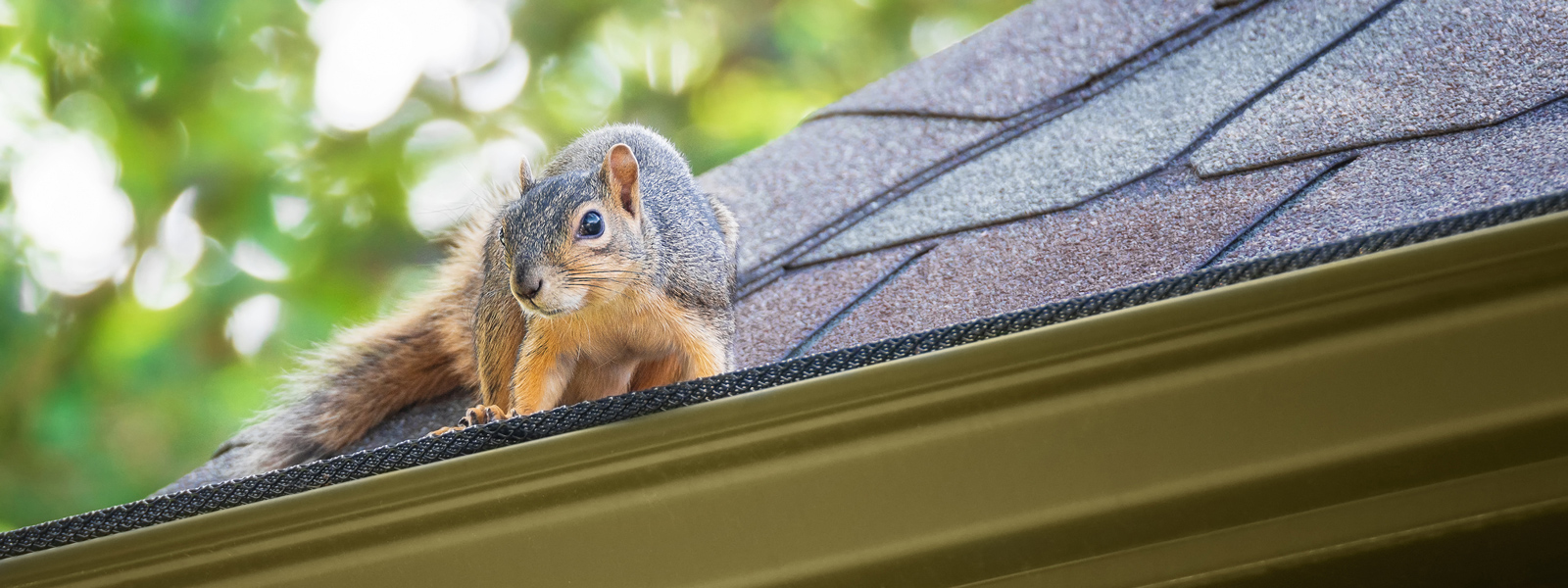Humane Rodent and Dead Animal Removal: Local Experts Near You.

Humane Rodent and Dead Animal Removal: Local Experts Near You.
Quickly and discreetly remove rodents and dead animals from your home. Find a trusted professional near you.
If you are having a problem with a wild animal, please select your city/town in Pennsylvania from the map or list above. This Pennsylvania animal control directory lists the phone numbers of professional wildlife removal experts throughout Pennsylvania. These nuisance wildlife control operators deal with conflicts between people and wildlife such as squirrels living in an attic, or raccoons digging through the trash can. Call the licensed and insured professional listed here, and get the problem taken care of once and for all.
There are many Pennsylvania pest control companies, but most of them treat for insect problems, and have little experience dealing with wild animals. Our specially trained technicians have the specific knowledge and equipment necessary for Pennsylvania wildlife management. We are not extermination companies, we are professional Pennsylvania trappers of wildlife. We are humane, and do a complete job - everything from animal damage repairs to biohazard waste cleanup.
Our Pennsylvania animal control experts can handle many wildlife issues. Examples include Pennsylvania bat control and removal. It takes an experienced pro to safely and legally remove a colony of bats. The same goes for bird control, such as roosting pigeons. We know all the species of Pennsylvania snakes, and can safely remove them. We most commonly deal with animals in the home, such as rats or mice in the attic, or raccoons in the chimney. Select your area on the map above, and find a professional in your home town.
There are many Pennsylvania pest control companies, but most of them treat for insect problems, and have little experience dealing with wild animals. Our specially trained technicians have the specific knowledge and equipment necessary for Pennsylvania wildlife management. We are not extermination companies, we are professional Pennsylvania trappers of wildlife. We are humane, and do a complete job - everything from animal damage repairs to biohazard waste cleanup.
Our Pennsylvania animal control experts can handle many wildlife issues. Examples include Pennsylvania bat control and removal. It takes an experienced pro to safely and legally remove a colony of bats. The same goes for bird control, such as roosting pigeons. We know all the species of Pennsylvania snakes, and can safely remove them. We most commonly deal with animals in the home, such as rats or mice in the attic, or raccoons in the chimney. Select your area on the map above, and find a professional in your home town.
Pennsylvania info: The state mammal is the White-Tailed Deer, and there are lots of them! Also, lots of ticks and Lyme Disease! Common nuisance animals include squirrels, skunks, opossums, and bats.
If you need assistance with a domestic animal, such as a dog or a cat, you need to call your local Pennsylvania county animal services or SPCA for assistance. They can help you out with issues such as stray dogs, stray cats, dangerous animal complaints, pet adoption, bite reports, deceased pets, lost pets, and other issues. We have those numbers listed here for your convenience. If your city is not on our map, consult your local yellow pages or search for 'Animal Control' or 'SPCA' in your town.
If you need assistance with a domestic animal, such as a dog or a cat, you need to call your local Pennsylvania county animal services or SPCA for assistance. They can help you out with issues such as stray dogs, stray cats, dangerous animal complaints, pet adoption, bite reports, deceased pets, lost pets, and other issues. We have those numbers listed here for your convenience. If your city is not on our map, consult your local yellow pages or search for 'Animal Control' or 'SPCA' in your town.
Harrisburg, PA
23°F to 86°F
23°F to 86°F
- 7-spotted ladybug, Pennsylvania firefly
- Northern Toad
- Trout
- Ruffed grouse
- White-tailed deer
Pennsylvania is one of the most populated states, but most of the residents are squeezed onto a little more than half the state, leaving the other half sparsely populated. This is usually okay with most people in the state; city-lovers can have their skyscrapers, and the peace-loving hermits can have their mountainous solitude. Once you enter Pennsylvania, you find a more uniform climate, though the southern part of the state will always be subject to warmer weather than the northern region. Despite the temperature differences, Pennsylvania gets a fair amount of snow, and the portion near Lake Erie can average over 100 inches a year.
The state is mostly forest with the exception of what mankind has carved into farmland, and because of this, most of the animals seen in the state are those that love being under cover of trees. As you might expect, raccoons are still one of the most common pest animals. Many other forest animals give the raccoon a run for its money in this state, however, and skunks, woodchucks, porcupines, bear, squirrels, chipmunks, and opossums are only a few potential home invaders.
It is so common to see wild animals in this area of the country that most folks living in the rural areas of the state know they need to take certain precautions against garbage raiders. Bears are notoriously brave in problem areas, but it's the skunks and raccoons that can be the most frequent visitors to your unprotected trash.
Living so close to trees also means having an inevitable squirrel visitation. They key is to make sure your home is as sealed as possible. If you live near trees, squirrels will find you. The same can be true of chipmunks, but these little guys almost never decide to live inside the home itself.
Pennsylvania also has an issue with wild hogs. The population of these dangerous, aggressive creatures has boomed over the last decade, and the hogs are so densely populated that have begun to spread north. Traps for wild hogs are not unlike repeater traps for large volumes of rats. Using a funnel system, the hogs are corralled and then shipped out of the area or handled appropriately by the local authorities.
Rumor has it that a new population of cougars has appeared in Pennsylvania, though the Department of Fish and Game denies any evidence of such.
The state is mostly forest with the exception of what mankind has carved into farmland, and because of this, most of the animals seen in the state are those that love being under cover of trees. As you might expect, raccoons are still one of the most common pest animals. Many other forest animals give the raccoon a run for its money in this state, however, and skunks, woodchucks, porcupines, bear, squirrels, chipmunks, and opossums are only a few potential home invaders.
It is so common to see wild animals in this area of the country that most folks living in the rural areas of the state know they need to take certain precautions against garbage raiders. Bears are notoriously brave in problem areas, but it's the skunks and raccoons that can be the most frequent visitors to your unprotected trash.
Living so close to trees also means having an inevitable squirrel visitation. They key is to make sure your home is as sealed as possible. If you live near trees, squirrels will find you. The same can be true of chipmunks, but these little guys almost never decide to live inside the home itself.
Pennsylvania also has an issue with wild hogs. The population of these dangerous, aggressive creatures has boomed over the last decade, and the hogs are so densely populated that have begun to spread north. Traps for wild hogs are not unlike repeater traps for large volumes of rats. Using a funnel system, the hogs are corralled and then shipped out of the area or handled appropriately by the local authorities.
Rumor has it that a new population of cougars has appeared in Pennsylvania, though the Department of Fish and Game denies any evidence of such.
Pennsylvania Wildlife Invading Homes: A Growing Concern
Pennsylvania's landscape and climate make it an ideal habitat for a wide variety of wildlife. Unfortunately, this can also lead to problems for homeowners as animals seek shelter and food in residential areas.
As the human population continues to expand, encounters with wildlife are becoming increasingly common across the United States. One of the most frustrating and sometimes dangerous issues for homeowners is when animals find their way inside.
One of the most common culprits is the raccoon. These intelligent and adaptable creatures are skilled at finding ways into homes through small openings in roofs, chimneys, or vents. Once inside, they can cause damage to insulation, wiring, and furniture.
The specific types of wildlife that may invade homes vary depending on the region, but some common culprits in Pennsylvania include:
To prevent wildlife from entering your home, consider the following:
If you have a wildlife infestation, it's important to contact a professional wildlife removal service. They have the experience and equipment to safely and humanely remove animals from your home and prevent future infestations.
By taking these steps, you can help protect your home and property from wildlife damage while also ensuring the safety of both humans and animals
As the human population continues to expand, encounters with wildlife are becoming increasingly common across the United States. One of the most frustrating and sometimes dangerous issues for homeowners is when animals find their way inside.
One of the most common culprits is the raccoon. These intelligent and adaptable creatures are skilled at finding ways into homes through small openings in roofs, chimneys, or vents. Once inside, they can cause damage to insulation, wiring, and furniture.
The specific types of wildlife that may invade homes vary depending on the region, but some common culprits in Pennsylvania include:
- Opossums: These nocturnal marsupials can squeeze through surprisingly small holes.
- Squirrels: Both ground squirrels and tree squirrels can cause damage to homes and gardens.
- Bats: Bats may enter through small gaps in the roof or walls, potentially carrying diseases.
- Rodents: Rats and mice can squeeze through tiny openings and contaminate food.
To prevent wildlife from entering your home, consider the following:
- Seal up entry points: Inspect your home for any gaps or cracks in the exterior and seal them with caulk or metal flashing.
- Install screens: Use screens on windows and vents to deter flying animals.
- Remove attractants: Keep garbage, pet food, and bird feeders away from your home to avoid attracting wildlife.
If you have a wildlife infestation, it's important to contact a professional wildlife removal service. They have the experience and equipment to safely and humanely remove animals from your home and prevent future infestations.
By taking these steps, you can help protect your home and property from wildlife damage while also ensuring the safety of both humans and animals
